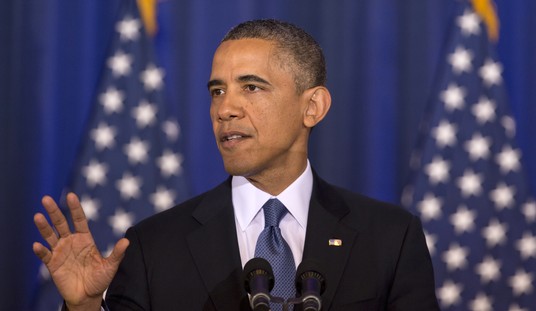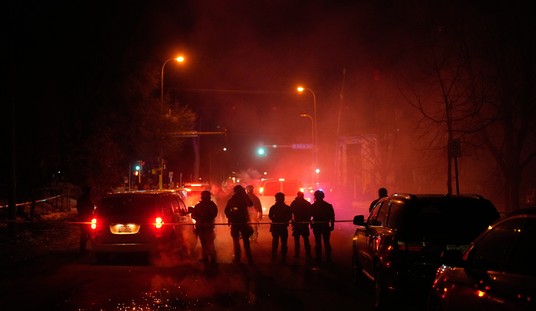According to this article at the reliable Nikkei news site, the Fukushima No. 1 nuclear plant did indeed suffer a meltdown yesterday:
Meltdown Caused Nuke Plant Explosion: Safety Body
TOKYO (Nikkei)–The Nuclear and Industrial Safety Agency (NISA) said Saturday afternoon the explosion at the Fukushima No. 1 nuclear plant could only have been caused by a meltdown of the reactor core.
The same day, Tokyo Electric Power Co. (9501), which runs the plant, began to flood the damaged reactor with seawater to cool it down, resorting to measures that could rust the reactor and force the utility to scrap it.
Cesium and iodine, by-products of nuclear fission, were detected around the plant, which would make the explosion the worst accident in the roughly 50-year history of Japanese nuclear power generation.
An explosion was heard near the plant’s No. 1 reactor about 3:30 p.m. and plumes of white smoke went up 10 minutes later. The ceiling of the building housing the reactor collapsed, according to information obtained by Fukushima prefectural authorities.
At a news conference Saturday night, Chief Cabinet Secretary Yukio Edano discounted the possibility of a significant leak of radioactive material from the accident. “The walls of the building containing the reactor were destroyed, meaning that the metal container encasing the reactor did not explode,” Edano said.
This confirms earlier speculation by Stratfor, linked by Charlie and Stephen, which also claims that evidence pointed to a meltdown.
If this is true, then the questions remain: How bad is the radiation exposure? And what will this mean for the future of nuclear power in the United States?
If the plant did in fact have a meltdown, and yet the radiation leakage was still minimal due to superior modern plant design, perhaps this could be seen as an argument for the safety of newer nuke plants, undermining the impression given by the poorly designed Three Mile Island and Chernobyl plants that all nuclear reactors are inherently unsafe.
If however, the radiation leakage is much worse that has been been heretofore reported, then this will be used as an effective argument against building any more nuke plants in the U.S., meaning we’ll still be mostly dependent on petroleum products for our power generation until fusion (cross fingers) comes online in a few decades.
UPDATE:
Stanford Review’s “Bellum” blog links here and casts doubt on the Nikkei news story, saying it doesn’t bear up under closer inspection:
Japan’s Nuclear Safety Board DID NOT Confirm Meltdown
Drudge Report is headlining MELTDOWN and PajamasMedia has picked it up here, describing the source as a “reliable” news site. No other major media organizations have picked up the story. This is likely because it is erroneous, based on outdated information and hysteria-driven journalism. The article claims that Japan’s Nuclear and Industrial Safety Agency “said Saturday afternoon the explosion at the Fukushima No. 1 nuclear plant could only have been caused by a meltdown of the reactor core.” There’s just one problem: it does not appear the NISA actually said this.
The explosion occurred at approximately 3:30 PM local time. The Telegraph reports that “as the night wore on, there was more encouraging noise. The nuclear safety agency which had spoken of possible ‘meltdown’ now declared Fukushima a ‘level 4 incident’ on the accepted international scale, one with only a limited release of radiation and simply ‘local consequences.’”
Furthermore, in an official report released by the NISA — current as of midnight — there was no mention of a meltdown.
The problem with Bellum’s analysis is that a “level 4 incident” does not rule out a meltdown. The “levels” of the international scale describe how much radiation leaked and the affect it has had on the environment. It does not concern itself with the cause of the radiation leakage.
It is possible that a well-contained partial meltdown did occur, and that the meltdown resulted in a “level 4 incident.”
But basically, at this stage, it seems the situation is in flux, and that agencies are running around trying to either give out information, cover up information, reassure the public, or all three.
Obviously, we’ll get more clarification soon.
Update 2:
If you check out the home page of Nikkei’s English-language news site, you’ll see that it does indeed appear to be a serious news agency with no flaky articles or obvious political agenda. And they’re not trying to bury this story, either: here’s a screenshot of their current headlines:
Believable? Reliable? You judge.










Join the conversation as a VIP Member